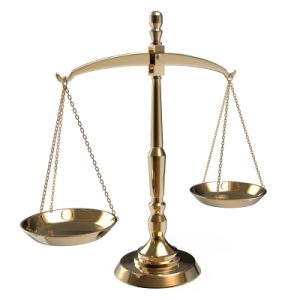by David Galland, Managing Director
Every nation-state has a body of laws woven into the fabric of society. As Peruvian economist Hernando de Soto has commented on extensively, the stronger the rule of law, the stronger the economy.

That’s because the lack of a consistent body of law breeds uncertainty and adds a huge element of risk for entrepreneurs. That is the case here in Argentina, where hardly a week goes by without La Presidenta and her meddlesome comrades cooking up some new hurdle for businesses to overcome.
Which brings me back to the matter at hand – American justice on a slippery slope.
Few recent cases make the contention clearer than the announcement last week by the US Justice Department that it had settled its case against HSBC for acting as the bag men for Colombian and Mexican drug cartels. The fine, $1.9 billion, amounts to about five weeks of revenue for the bank.
And that was pretty much it.
Matt Taibbi of Rolling Stone magazine, who can run hot or cold when it comes to reporting, in my opinion, nails his column on the verdict, which you can read here.
The basic setup is that for years, at the highest levels of HSBC, the bank worked hand in glove with the drug cartels to launder their money. So smooth was their relationship that the drug gangs used special cardboard boxes for them to fill with cash – boxes that were designed to fit easily through the teller windows of the HSBC branches in Mexico.
Now, don’t get me wrong – I am 100% against the so-called “War on Drugs.” That there are hundreds of thousands of Americans in prison for the “crime” of voluntarily ingesting recreational drugs, or providing said drugs in a rare free-market transaction (there’s a willing buyer and a willing seller and no regulations – at least none that anyone pays any attention to), is an abomination.
And so it is that the US has the highest prison population in the world, and by a wide margin: on a per-capita basis, it is 33% higher than the closest contender, Russia.
If you take into account everyone under “correctional supervision,” 3.1% of the US population is either in jail or on probation (for blacks, it’s a stunning 9.2%). According to Human Rights Watch, since 1980 the number of people in US jails for drug charges has increased twelvefold.
Yet, the money men for the murderous cartels that supply the stuff – the sort of fat-cat villains that serve as the centerpiece of every James Bond movie – get off with a hand slap.
How is this possible? The answer is that, just like the much-maligned “banana republic,” the judicial system in the Anglo-Saxon world has been bifurcated into two systems – one for the politically favored and the other for the rest of us.
In the case of HSBC, the rationale for management being spared even a criminal trial, let alone years behind bars, is that the bank is too big to fail. And that should anyone within the bank be collared for their colossal crimes, it could provide the trigger for the widespread collapse of the global financial system.
To which an Anglo-Saxon from the UK might retort, “Bollocks!” This is rather a case of the politically connected and their equally politically connected, high-priced law firms twisting the judicial system to their purposes.
Another recent case is that of the LIBOR fixing scandal.
As you know, in this case a group of banks clearly conspired to rig the rates on the interest-rate index used to underpin over $300 trillion in loans. As the scandal was revealed, it was also revealed that top tax dodger and now US Treasury Secretary Tim “Timmy” Geithner was aware of the rigging as far back as at least 2007 when operating the Federal Reserve Bank of New York.
Yet Geithner’s elevated position in the Obama administration meant that this inconvenient revelation quietly faded into nothingness. As did the clear implication that if Geithner knew about it, so did untold scores of others at the Fed and other institutions at the time.
Meanwhile, back in the present, instead of rounding up the heads of these institutions, it was announced this week that a handful of floor traders – the ever useful minions – have been fingered to take the fall. For the sake of the public show, I suspect the fall will be pretty hard.
Hell, the last time I checked, even Jon Corzine, who as a former senator and governor of New Jersey is the über-insider, is still a free man despite being the lead actor in the bankruptcy of MF Global and the subsequent looting of billions in customer funds. No one, except maybe Corzine himself, thinks that he isn’t criminally complicit, yet, at this writing, there isn’t even a hint he’ll be prosecuted.
As David Webb has so thoroughly documented, a spate of cases over the last decade has set a clear precedent that financial institutions – at least those of a size to count with the political class – are pretty much free to lie, cheat, misrepresent, and even use their clients’ funds to trade for their own book.
And if things go wrong, they can pass the losses on to the clients, or in the case of Corzine simply shrug his Savile Row-clad shoulders, and feign ignorance about where said funds went.
